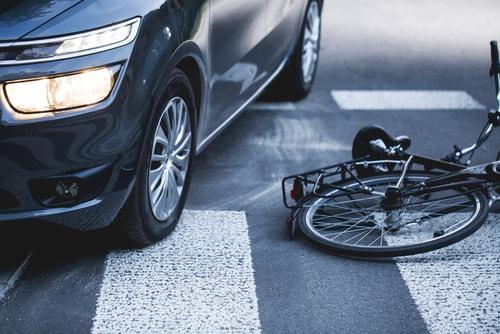 Losing a loved one in any type of an accident is certainly heartbreaking. When a family member is killed as the result of negligence by another person or entity, the situation is often even more tragic. While nothing can truly make up for the grief and pain experienced by the victim’s spouse, children, and other relatives, depending on the circumstances, they may be able to seek compensation for their loved one’s death from the responsible party or parties. As a recent ruling by a New Haven Superior Court shows, in some cases, a wrongful death award can be quite substantial.
Losing a loved one in any type of an accident is certainly heartbreaking. When a family member is killed as the result of negligence by another person or entity, the situation is often even more tragic. While nothing can truly make up for the grief and pain experienced by the victim’s spouse, children, and other relatives, depending on the circumstances, they may be able to seek compensation for their loved one’s death from the responsible party or parties. As a recent ruling by a New Haven Superior Court shows, in some cases, a wrongful death award can be quite substantial.
A Preventable Accident?
The wrongful death action was filed in New Haven in 2014 following a fatal accident in East Haven two years earlier. In July of 2012, a 51-year-old man was riding his bicycle on Coe Avenue when he was struck from behind by a van driven by a 52-year-old Milford woman. The van was owned by a Guilford-based outreach organization for children and adults with special needs, and the driver was transporting two clients of the non-profit group.
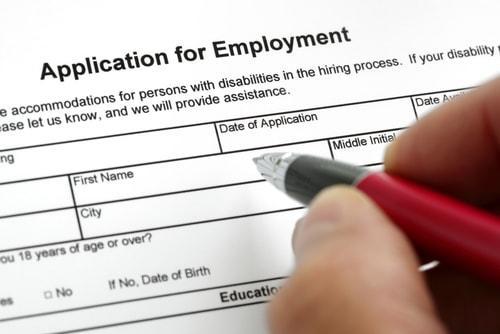 Throughout his two terms in office, Connecticut Governor Dannel P. Malloy has been influential in implementing numerous reforms in the state’s criminal justice system. Many of his plans—known collectively as the “Second Chance Society”—have focused on rehabilitating non-violent and drug offenders rather than continuing to emphasize criminal penalties. Last summer, Governor Malloy renewed his efforts to help former offenders to become productive members of society once again by signing a measure that limits most employers’ ability to ask about a job applicant’s criminal history.
Throughout his two terms in office, Connecticut Governor Dannel P. Malloy has been influential in implementing numerous reforms in the state’s criminal justice system. Many of his plans—known collectively as the “Second Chance Society”—have focused on rehabilitating non-violent and drug offenders rather than continuing to emphasize criminal penalties. Last summer, Governor Malloy renewed his efforts to help former offenders to become productive members of society once again by signing a measure that limits most employers’ ability to ask about a job applicant’s criminal history.
“Ban the Box” Laws on the Rise
The new law took effect on January 1, 2017, making Connecticut one of 26 states to institute what has become known as a “Ban the Box” statute. The phrase was coined by civil rights groups in reference to the check box on many job applications that an applicant must check if he or she has a criminal record. Proponents of such laws believe that employers tend to screen out applicants with blemishes in their background, despite being otherwise qualified for an available position.
 Over the last several years, there has been much written and spoken about the need for police officers to wear video cameras attached to their person when on duty. Public outcry on the matter has grown as police shootings and alleged incidents of officer misconduct have continued to occur across the country. Proponents of mandatory body cameras believe that the recording devices can be used to hold law enforcement personnel fully accountable for their actions. While this may be true, body cameras can also provide supporting evidence in any situation to which the officer may have been a witness, including a motorcycle accident.
Over the last several years, there has been much written and spoken about the need for police officers to wear video cameras attached to their person when on duty. Public outcry on the matter has grown as police shootings and alleged incidents of officer misconduct have continued to occur across the country. Proponents of mandatory body cameras believe that the recording devices can be used to hold law enforcement personnel fully accountable for their actions. While this may be true, body cameras can also provide supporting evidence in any situation to which the officer may have been a witness, including a motorcycle accident.
Dangerous Driving Leaves Motorcycle Rider Injured
In May of 2015, a middle-aged Watertown man was riding his motorcycle in Naugatuck when, without warning, a pickup truck attempted to turn across traffic. The truck hit the motorcycle, sending the man flying. The rider suffered a number of injuries, including serious damage to his left leg and ankle which required several surgeries. All told, the man incurred more than $100,000 in medical bills and remains partially disabled.
 If you are on someone else’s property without their permission and you are injured, do you have any rights to seek compensation for your injuries? In many cases, you may be rather out of luck, as a property owner has relatively few responsibilities for keeping adult trespassers safe—children may be a different story. Depending on the circumstances, however, you may have some hope of holding the property owner liable for your damages. A ruling in federal court in Connecticut recently addressed this question and allowed a lawsuit to continue on behalf of an injured trespasser.
If you are on someone else’s property without their permission and you are injured, do you have any rights to seek compensation for your injuries? In many cases, you may be rather out of luck, as a property owner has relatively few responsibilities for keeping adult trespassers safe—children may be a different story. Depending on the circumstances, however, you may have some hope of holding the property owner liable for your damages. A ruling in federal court in Connecticut recently addressed this question and allowed a lawsuit to continue on behalf of an injured trespasser.
Gruesome Injuries
In March 2011, a 26-year-old man climbed an electrical tower on property owned by a commuter railway company. It is unclear how high he had climbed, but while well above the ground, the man was hit by an arc electric shock from one of the surrounding high-voltage wires. He subsequently fell from the tower and was caught by a network of live wires beneath him while electricity continued to surge through his body. Witnesses say they saw the man “hanging with his leg in flames from the tower,” before rescue workers could extract him nearly 45 minutes later. Somehow, the man survived but suffered burns over most of his body, and both of his legs had to be amputated.
 It has been said that you can find anything online if you look hard enough. While some people use the internet to find entertaining videos, news stories, sports highlights, and hobby advice, others are attracted to the way that it allows them to share their lives with others. Social media outlets have become an extremely popular form of communication, with Facebook boasting more than 1.8 billion—yes, billion with a “b”—active monthly users. Facebook Live, a live video streaming feature, launched about a year ago, giving users the ability to instantly share videos of their exploits and experiences with their friends. But, what happens when those exploits are actually homicides or sexual assaults being broadcast in real time? Does a person who sees a crime on social media have a legal obligation to report it to appropriate authorities?
It has been said that you can find anything online if you look hard enough. While some people use the internet to find entertaining videos, news stories, sports highlights, and hobby advice, others are attracted to the way that it allows them to share their lives with others. Social media outlets have become an extremely popular form of communication, with Facebook boasting more than 1.8 billion—yes, billion with a “b”—active monthly users. Facebook Live, a live video streaming feature, launched about a year ago, giving users the ability to instantly share videos of their exploits and experiences with their friends. But, what happens when those exploits are actually homicides or sexual assaults being broadcast in real time? Does a person who sees a crime on social media have a legal obligation to report it to appropriate authorities?
Recent Examples
The issue has been particularly illuminated by two high-profile examples in recent weeks—both involving actions broadcasted on Facebook Live. The first involved an alleged gang rape of a Chicago teenager by several juveniles and at least one adult, according to reports. Thus far, Chicago police have arrested one of the minors and another turned himself in, but at least 40 people watched the streaming video.
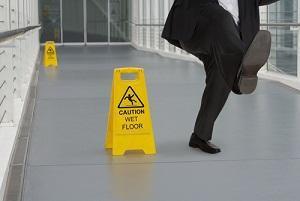 Any type of fall can result in catastrophic back, neck, and spinal injuries. Sadly, many such accidents are caused by the carelessness or inattentiveness on the part the part of the victim. Rather, they occur due to the actions or negligence of the property owners.
Any type of fall can result in catastrophic back, neck, and spinal injuries. Sadly, many such accidents are caused by the carelessness or inattentiveness on the part the part of the victim. Rather, they occur due to the actions or negligence of the property owners.
The Centers for Disease Control and Prevention reports that there were more than 28 million emergency room visits due to unintentional injuries in 2014—the most recent year for which full statistics are available. Many of these were slip and fall accidents which can incur hefty medical bills and thousands of dollars in lost wages for injured victims. It is important to note, however, that if you slipped and fell on someone else’s property, the owner or occupier of the property may be liable for your injuries and the resulting expenses.
Determining Liability
Liability for a slip and fall accident may fall on the owner of the property on which the accident occurred if:
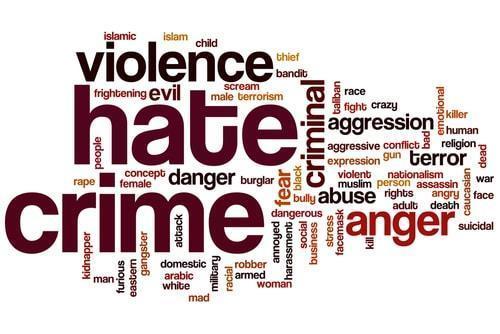 Efforts are underway in Hartford to bolster the state’s approach to prosecuting hate crimes. A new bill has been proposed and approved by the Senate Judiciary Committee that, if enacted, would make Connecticut’s hate crime penalties among the most severe in the country. The bill’s primary sponsor, Senator Martin Looney, D-New Haven, who is also the Democratic President Pro Tempore in the Senate, says that the legislation is a necessary response to recent “incidents of intimidation and threatening based on bigotry and bias.”
Efforts are underway in Hartford to bolster the state’s approach to prosecuting hate crimes. A new bill has been proposed and approved by the Senate Judiciary Committee that, if enacted, would make Connecticut’s hate crime penalties among the most severe in the country. The bill’s primary sponsor, Senator Martin Looney, D-New Haven, who is also the Democratic President Pro Tempore in the Senate, says that the legislation is a necessary response to recent “incidents of intimidation and threatening based on bigotry and bias.”
Over the last few months, there have been numerous reports of hate crimes throughout the state, including bomb threats called in to Jewish Community Centers and other offenses against African-Americans, Muslims, and transgender individuals. In fact, the Anti-Defamation League, an organization founded to combat anti-Semitism and discrimination, reports that the number of hate crimes has doubled in Connecticut in the last year.
 Despite a few major snowstorms—including Winter Storm Stella which virtually shut down the Northeast for a day or so—the 2016-2017 winter was a relatively mild one. While the cold season seemed to retighten its grip a little this month, spring is officially upon us and warmer weather will soon be here. Spring is a season of new beginnings, as trees begin to show signs of green once again and animals reemerge from their winter hideouts. Amidst the optimism of the season, there are also new dangers, especially for drivers, motorcycle riders, bicyclists, and pedestrians who use Connecticut’s roadways.
Despite a few major snowstorms—including Winter Storm Stella which virtually shut down the Northeast for a day or so—the 2016-2017 winter was a relatively mild one. While the cold season seemed to retighten its grip a little this month, spring is officially upon us and warmer weather will soon be here. Spring is a season of new beginnings, as trees begin to show signs of green once again and animals reemerge from their winter hideouts. Amidst the optimism of the season, there are also new dangers, especially for drivers, motorcycle riders, bicyclists, and pedestrians who use Connecticut’s roadways.
Roadway Wear and Tear
When the snow flies, we look to road maintenance crews to keep streets and highways safe by using snowplows, salt and sand spreaders, and other tools. These implements—along with effects of ice forming in existing cracks in the asphalt or pavement—can leave gouges, potholes, and debris in travel lanes. A driver who is even mildly distracted could easily hit a pothole, causing him or her to lose control and collide with another vehicle. Leftover sand and gravel are especially dangerous for motorcyclists who may not always see the hazard until it is too late.
 Every time that a person seeks medical attention for an illness or injury, the reason for the visit is recorded in code form in the individual’s medical record. The coding system for classifying diagnoses is notoriously complex and the current iteration—known formally as the International Classification of Disease, Tenth Edition or ICD-10—includes more than 70,000 codes, with more than 3,000 dedicated just to physical injuries. Whether you have been stung by a bee or hit by a car—or even a horse-drawn buggy—there is an ICD-10 code to describe your situation.
Every time that a person seeks medical attention for an illness or injury, the reason for the visit is recorded in code form in the individual’s medical record. The coding system for classifying diagnoses is notoriously complex and the current iteration—known formally as the International Classification of Disease, Tenth Edition or ICD-10—includes more than 70,000 codes, with more than 3,000 dedicated just to physical injuries. Whether you have been stung by a bee or hit by a car—or even a horse-drawn buggy—there is an ICD-10 code to describe your situation.
Injury Studies
Recently, a healthcare analytic company called Amino released the results of its comprehensive analysis of about 244 million health insurance claims for services provided by medical professionals between 2012 and 2016. The research shows that Americans suffer a wide range of physical injuries but there are national trends. In addition, many states seem to have quirky conditions that set them apart from the others.
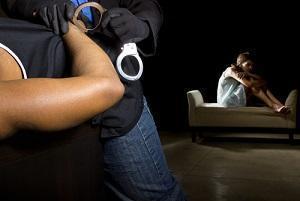 Despite aggressive, nationwide awareness campaigns over the last several decades, domestic violence and intimate partner abuse continue to plague families throughout Connecticut and across the country. Tragically, millions of people suffer abuse at the hands of a spouse, partner, or another family member each year, and an alarmingly large number of victims are hesitant or simply refuse to seek help. Sometimes, however, a domestic violence victim will have the courage to call the police, hoping that law enforcement will help resolve the problem at hand. The police arrive and arrest the alleged abuser—then proceed to arrest the victim as well. This is known as a “dual arrest,” and the rate of such arrests in Connecticut is nearly 10 times higher than the national average.
Despite aggressive, nationwide awareness campaigns over the last several decades, domestic violence and intimate partner abuse continue to plague families throughout Connecticut and across the country. Tragically, millions of people suffer abuse at the hands of a spouse, partner, or another family member each year, and an alarmingly large number of victims are hesitant or simply refuse to seek help. Sometimes, however, a domestic violence victim will have the courage to call the police, hoping that law enforcement will help resolve the problem at hand. The police arrive and arrest the alleged abuser—then proceed to arrest the victim as well. This is known as a “dual arrest,” and the rate of such arrests in Connecticut is nearly 10 times higher than the national average.
The Problems of Mandatory Arrest
Connecticut is one of 22 states with laws that require police to make an arrest when they respond to a domestic violence call. In theory, mandatory arrest laws are intended to protect victims of abuse by eliminating the need for officers to make a judgment call on the scene. But in practice, such laws have unintended consequences. Studies suggest that many victims fear additional retaliation from their abusers following a call to a police and mandatory arrest, which means mandatory arrest laws may actually be reducing calls for help.
 50 Founders Plaza
50 Founders Plaza

